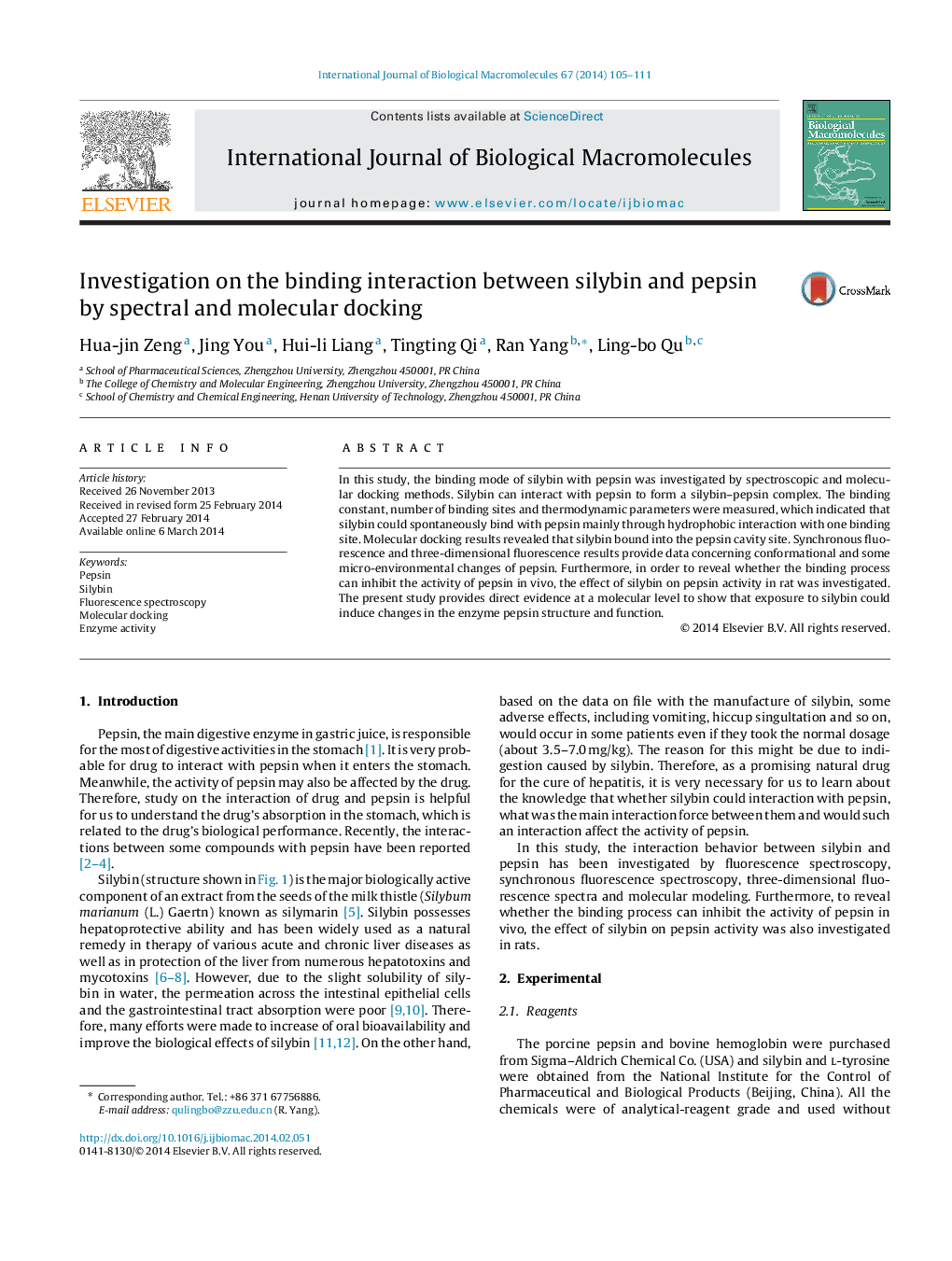| Article ID | Journal | Published Year | Pages | File Type |
|---|---|---|---|---|
| 8332876 | International Journal of Biological Macromolecules | 2014 | 7 Pages |
Abstract
In this study, the binding mode of silybin with pepsin was investigated by spectroscopic and molecular docking methods. Silybin can interact with pepsin to form a silybin-pepsin complex. The binding constant, number of binding sites and thermodynamic parameters were measured, which indicated that silybin could spontaneously bind with pepsin mainly through hydrophobic interaction with one binding site. Molecular docking results revealed that silybin bound into the pepsin cavity site. Synchronous fluorescence and three-dimensional fluorescence results provide data concerning conformational and some micro-environmental changes of pepsin. Furthermore, in order to reveal whether the binding process can inhibit the activity of pepsin in vivo, the effect of silybin on pepsin activity in rat was investigated. The present study provides direct evidence at a molecular level to show that exposure to silybin could induce changes in the enzyme pepsin structure and function.
Related Topics
Life Sciences
Biochemistry, Genetics and Molecular Biology
Biochemistry
Authors
Hua-jin Zeng, Jing You, Hui-li Liang, Tingting Qi, Ran Yang, Ling-bo Qu,
